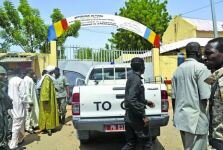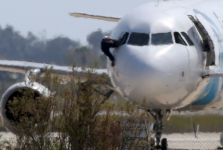Russia, Ukraine, Germany and France agree to halt the shooting, but deeper issues are left untouched.

THE pens were on the table in Minsk, Belarus’s capital, for the leaders of France, Germany, Russia and Ukraine to sign an agreement to end a year-long war fuelled by Russia and fought by its proxies. But on February 12th, after all-night talks, they were put away. “No good news,” said Petro Poroshenko, Ukraine’s embattled president. Instead there will be a ceasefire from February 15th. A tentative agreement has been reached to withdraw heavy weaponry.
But Russia looks sure to be able to keep open its border with Ukraine and sustain the flow of arms and people. The siege of Debaltseve, a strategic transport hub held by Ukrainian forces, continues. Russia is holding military exercises on its side of the border. Crimea was not even mentioned.
Meanwhile the IMF has said it will lend Ukraine $17.5 billion to prop up its economy. But Mr Putin seems to be relying on a familiar Russian tactic of exhausting his negotiating counterparts and taking two steps forward, one step back. He is counting on time and endurance to bring the collapse and division of Ukraine and a revision of the post-cold war world order. This is not a conflict that can be resolved in Minsk.





